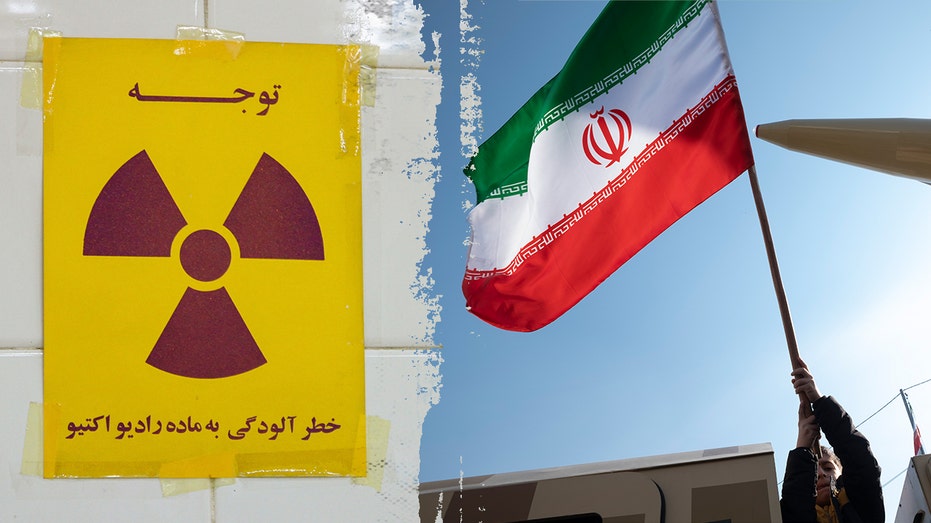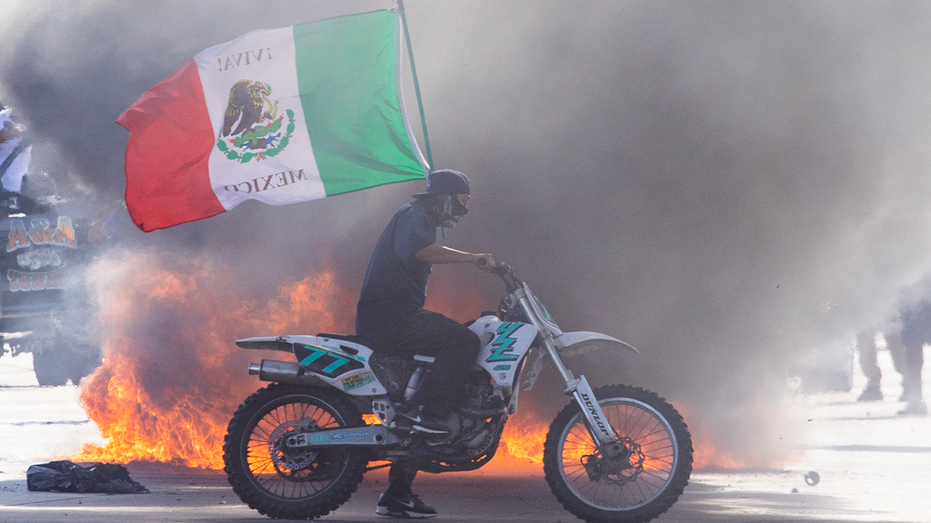Israel’s airstrikes on Tehran, Iran, on Friday morning marked a dramatic escalation in the proxy war between the two regional rivals, reigniting one of the most consequential questions in international security: Just how close was Iran to building a nuclear weapon?
While Israeli experts have warned for years that Iran was enriching uranium at a level that put it “weeks away” from a nuclear weapon, in recent days, there has been a shift. According to Israeli intelligence sources, Iran was on the verge of assembling a crude nuclear device.
Beni Sabti, an Iran expert at the Institute of National Security Studies, told Fox News Digital the threat was urgent and specific: Tehran was pulling its materials together “in a secret place near Tehran to make a primitive warhead.”
Gregg Roman, executive director of the Middle East Forum, said that since the Trump administration reinitiated nuclear negotiations, Israel had been collecting fresh intelligence that raised alarm bells.
GLOBAL CALLS TO AVOID ESCALATION POUR IN AFTER ISRAELI STRIKES ON IRAN
“There were a few things that stood out,” Roman said, referencing activity at the Times Enrichment facility. “Iran reactivated an explosives manufacturing line, which could only be used to help that needed nuclear weapon… efforts to put the fissile material into a shape which could be used for a nuclear weapon – that was reactivated as well.”
Roman added that these developments mirrored work Iran halted in 2003, when it froze its military nuclear program.
Experts believe Iran is enriching uranium to 60%, which puts it just below the 90% needed for a nuclear weapon, and have said there is no civilian use for 60% enriched uranium.
However, Director of National Intelligence Tulsi Gabbard told a Senate worldwide threats hearing in April Iran is not moving toward a nuclear weapon.
“The IC [intelligence community] continues to assess that Iran is not building a nuclear weapon and Khamenei has not authorized the nuclear weapon program that he suspended in 2003,” she said.
“The IC continues to monitor closely if Tehran decides to reauthorize its nuclear weapons program. In the past year, we’ve seen an erosion in the decades-long taboo in Iran of discussing nuclear weapons in public, likely emboldening nuclear weapons advocates within Iran’s decision-making apparatus,” Gabbard said.
President Donald Trump on Friday noted he gave Iran a 60-day “ultimatum” to make a deal, and Friday was day 61. Nuclear negotiations between Washington and Tehran were scheduled for this weekend, but whether those talks will carry on as planned remains unclear.
Not everyone is convinced Iran is actively building a bomb. Rosemary Kelanic, a political scientist and nuclear deterrence expert, urged caution about the narrative coming from Israeli officials.
“Those in favor of this attack, including Israel, are going to do everything they can to try to make it look like Iran was on precipice of a bomb,” Kelanic said. “But we need to be really critical in our thinking.”
TRUMP SAYS ISRAEL’S NEXT IRAN ATTACK WILL BE EVEN MORE BRUTAL: ‘MAKE A DEAL’
U.S. intelligence assessments, she noted, have consistently judged that Iran was not pursuing an active weaponization program, even though it possessed enough enriched uranium to build a bomb. “Iran could have built a bomb back in 2022 if not earlier, and chose not to. That’s the reason that I think they don’t have one now.”
However, Kelanic warned that the Israeli strikes might push Iran to reconsider that restraint.
“Their best path forward now, tragically, is to run a crash program and test a nuclear device as soon as they possibly can,” she said. “Super risky to do that, but then maybe they can establish some kind of deterrence from Israel.”
The competing intelligence narratives reflect deep uncertainty about Iran’s intentions and even more uncertainty about what comes next. While Israel argues that its strikes disrupted a dangerous escalation, critics fear they may have accelerated it.
Kelanic suggested that even if the U.S. and Iran had come to a deal on Tehran’s nuclear program, Israel may still have carried out strikes on Iran.
“They just wouldn’t trust that Iran would actually give up nuclear weapons, right?” she said. “If you think that they truly can never have it, and it’s an existential threat to Israel, etc, then the only thing you can do is either completely wreck Iran as a functioning state, turn it into a failed state, unable to ever get nuclear weapons.”
For now, time will tell whether Israel’s strikes decimate Iran’s nuclear capabilities or the decades-long threat will continue.
Latest Political News on Fox News Read More




